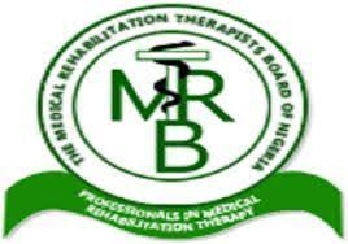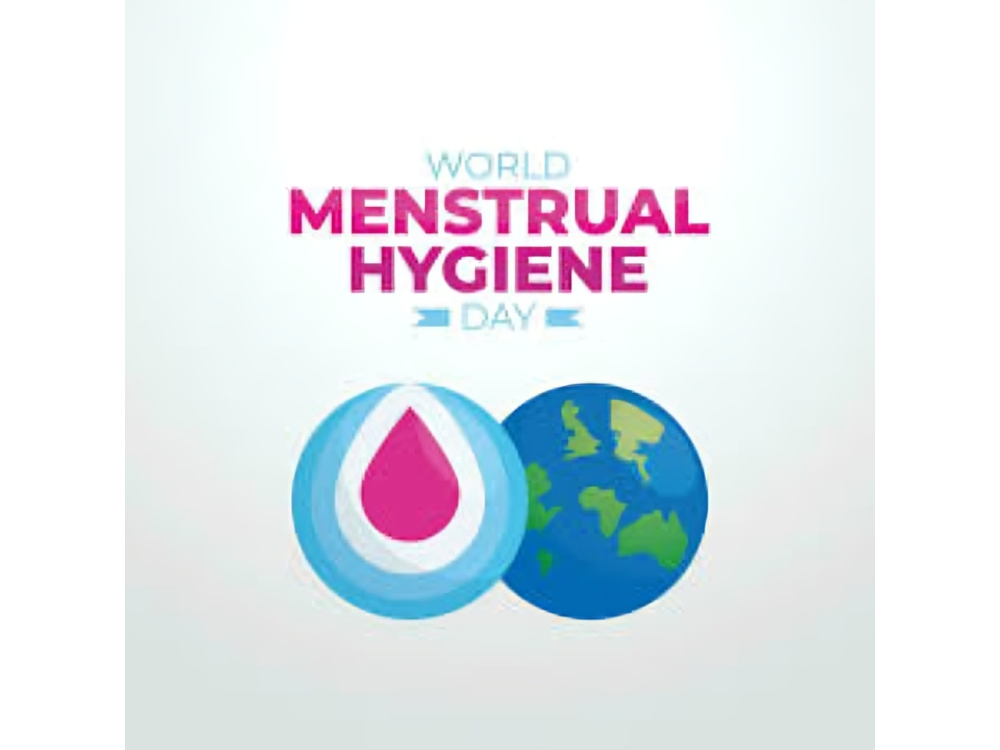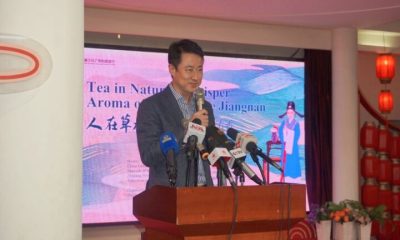Health
MRTBN Closes Over 300 Quack Facilities, Urges FG to Establish Medical Rehabilitation Centers

By Laide Akinboade
In order to address the challenge of quacks, the Medical Rehabilitation Therapists Board of Nigeria (MRTBN), said it has so far closed over 300 quack facilities in Nigeria.
The Registrar of MRTBN, Dr.
Olufunke Akanle, revealed this at the 2nd International Conference of Medical Rehabilitation Professionals (ICMRP), Abuja 2019.she said it is urgent and imperative for the Federal government to establish medical rehabilitation centers in the 6 geopolitical zones, in order to address the challenges of accessibility by patients.
MRTBN comprises of physiotherapists, occupational Therapists, speech Therapists, audiologists, orthotics, prosthetics, chiropractic and osteopathic medicine practitioners.
The theme of the conference was ‘strategic Initiatives for Sustainable Medical Rehabilitation Services in Nigeria and sub-Sahara- Africa ‘.
On quacks she said, “Some quacks are not trained but they are practicing and some practice what he is not licensed to practice. Based on this, we have a lot of establishment claiming they have physiotherapy services and when you go in there you discover they don’t have have physiotherapist at the center.
“We closed some of them especially in the south West and south south, we have close some and prosecute some. And some people that claim they are physiotherapist but are not we have arrested.
Also some individuals that refused to renew their licences, we have also written to their management to tell them that such individuals should not be promoted except they renew their licences.
“Well if we have to work by estimates in the southwest and south south, we have closed like 300 facilities, if you look out you don’t easily see a physiotherapy clinic like a pharmacy and patient store, but in a state you might not have more than 3 physiotherapy clinics and we also have some Non Governmental Organisation, NGOs that claimed they have physiotherapist”.
Lamenting the lack of well established medical rehabilitation center in any of the 6 geopolitical zones in Nigeria, she said, “It is long overdue for Nigeria to have well established medical rehabilitation center.
This is one of the things as a board we have recommended to the Federal Government. The objective of having a well rehabilitation center you reduce prevalence of disabilities because it comprises of early intervention and the treatment of rehabilitation so if you don’t have a well-established medical rehabilitation it increases prevalence of disabilities, because some conditions that could have been prevented were not prevented as at when due.
“Accessibility of medical rehabilitation centers is very low, because we only have it in very few tertiary health institutions like, teaching hospitals, Federal Medical centers and some general hospitals but we don’t have it in Primary Healthcare Centers, PHCs, so that when a patient with ailment like stroke is discharged in teaching hospital and there is need to continue with his rehabilitation treatment.
Even in our Teaching Hospitals, majorly what we have is physiotherapy services that are available, other medical rehabilitation professional are not available. But if the services are available the patient will just go from one room to the other that is why the Federal government need to establish medical rehabilitation centers in all the 6 geopolitical zones in the country”.
Professor Arinola Sanya, of Physiotherapy Department, College of Medicine, University of Ibadan, decried lack of cooperation between all health workers in Nigeria or patients won’t be able to get the best care. We need to access the psychology impact of rehabilitation.
“All health worker are not working effectively as one, we all want to achieve the same goal, to focus on the patient in order to get the best. No body does it all, if a physiotherapist need to call a psychologist to check his patient, does not make him weak but strong. So we should all work together to ensure the patient get the best care”. , she continued.
Health
Stakeholders Call for Better Menstrual Hygiene To Boost Health

Stakeholders have stressed the need for increased awareness and improved practices around menstrual hygiene, particularly to support better health outcomes and dignity for girls in underserved communities.
They made the call on Wednesday in Abuja ahead of the 2025 Menstrual Hygiene Day, commemorated globally every May 28 to address inequalities in menstrual health and hygiene.
The event was organised by Tabitha Cumi Foundation (TCF) under its Always Keeping Girls in School (AKGIS) project, with support from Charities Aid Foundation (CAF America).
Mrs Tayo Erinle, Executive Director of TCF, said menstrual hygiene remained a critical yet often overlooked aspect of reproductive health, especially among adolescent girls.
“Many girls live in households where no one provides sanitary pads or pays attention to that part of their lives.
“It happens monthly, and every girl deserves dignity and support,” she said.
Erinle added that more than 1,600 marginalised girls across 32 junior secondary schools in the FCT, Lagos, and Benue states were empowered through puberty education and menstrual hygiene management under the AKGIS project.
She said beneficiaries also received a one-year supply of Always sanitary pads and emergency kits.
“The project has boosted the girls’ confidence.
“Menstruation was once shrouded in secrecy, stigma, and confusion for many. Now, with access to correct information and education, they feel empowered,” she added.
Dr Adedolapo Fasawe, Mandate Secretary for the Health Services and Environment Secretariat, emphasised the importance of educating youths on reproductive health.
Represented by Dr Ruqayya Wamakko, Executive Secretary of the FCT Primary Health Care Board, she called for more sensitisation efforts to encourage young people to use health services in primary health centres.
“We give health talks, visit schools, form school clubs, and teach students how to care for themselves, maintain personal and menstrual hygiene, and stay safe,” she noted.
Mrs Nwakonye Onyirechi, Assistant Chief Investigative Officer in the Women and Children Department of the National Human Rights Commission (NHRC), reiterated the commission’s commitment to protecting the rights of the girl child.
“We go to schools to sensitise girls to their rights and encourage them to speak up when their rights are violated,” she said.
Dr Safiya Tamanuwa, Deputy Director of the Placement and Gender Unit at the Universal Basic Education Commission (UBEC), commended TCF for its support toward improving the health and well-being of schoolgirls.
Highlights of the event included the distribution of sanitary pads and kits, a literary presentation, and expert-led health talks.(NAN)
Health
Group urges Nigerians to embrace healthy habits to prevent diseases

The Society of Lifestyle Medicine of Nigeria (SOLONg) has advised Nigerians to embrace healthy preventive lifestyle habits to prevent the root causes of chronic and lifestyle-related diseases.
The President of SOLONg, Dr Moyosore Makinde, gave the advice in an interview in commemoration of the “Global Lifestyle Medicine Week” on Tuesday in Lagos.
NAN reports that the Global Lifestyle Medicine Week, taking place from May 18 to May 24, 2025, has the theme “Celebrating Healthy Habits: Inspire Change with D.
R.E.A.M.S.”Makinde, also an International Board-certified Lifestyle Medicine Physician, said the week was dedicated to raising awareness about the transformative power of lifestyle medicine in improving health outcomes and reducing the burden of chronic diseases worldwide.
According to her, lifestyle medicine empowers people to live healthier, happier and longer lives.
She explained that the D.R.E.A.M.S. acronym highlighted the six key pillars of lifestyle medicine that guide individuals toward healthier lives namely: Predominantly plant-based Diets, positive Relationships or social connections, Exercise, Avoidance of toxic substances, Mental wellness and stress management, and restorative Sleep.
She said that these pillars had been proven by scientific research to not only manage and prevent chronic diseases like coronary heart disease, diabetes, dementia and Alzheimer’s but also to promote a more sustainable and harmonious relationship with ourselves and with our planet.
Makinde added that it contributed to planetary health and the stability of our ecosystem.
“SOLONg is proud to announce its participation in Global Lifestyle Medicine Week, taking place from May 18 to May 24, 2025.
“Scientific studies, including numerous randomised clinical trials and longitudinal studies, have consistently shown the remarkable benefits of lifestyle interventions in reducing the incidence of chronic conditions.
“Additionally, these healthy habits play a pivotal role in strengthening resilience against infectious diseases.
“The ongoing impact of several pandemics has underscored the importance of adopting healthy behaviours, as poor lifestyle choices have been associated with worse disease severity and slower recovery times,” she said.
Contributing, the General Secretary of SOLONg, Dr Chika Anozie, said that Global Lifestyle Medicine Week aimed to foster a community of like-minded individuals and healthcare professionals committed to lifestyle medicine.
Anozie, also a Family Physician, said that SOLONg would organise various activities to mark the week, including a Webinars and educational workshops on lifestyle medicine topics.
She added that there would be courtesy visits and community outreach programmes promoting healthy habits, as well as social media campaigns sharing lifestyle medicine tips and resources.
“As we observe Global Lifestyle Medicine Week, it is clear that the need for Lifestyle Medicine is greater than ever.
“This is a clarion call for the government to create policies that promote healthy lifestyle practices while restricting behaviours that contribute to disease.
“We urge medical institutions to prioritise the accreditation of Lifestyle Medicine programs at both undergraduate and postgraduate levels.
“It is equally important that health professionals receive the proper training to effectively communicate these life-saving messages to the public.
“The Society encourages individuals to embrace the principles of healthy living, which are not only lifechanging but also long-lasting,” she said.(NAN)
Health
NAFDAC Clarifies Sachet Alcohol Ban Timeline

The National Agency for Food and Drug Administration and Control (NAFDAC) has clarified its stance regarding the nationwide ban on sachet alcohol.
Mr Kenneth Azikiwe, Director of the FCT Directorate of the agency, in an interview on Monday in Abuja that the temporary lifting of the ban was only valid until Dec.
31, 2025.He emphasised that the recent ministerial lifting of the ban was not permanent and urged the public to disregard misinformation suggesting that the government had permanently lifted the restriction.
“There is a ministerial lifting on the ban of sachet alcohol, but it is only temporary and will be reviewed by Dec. 31, 2025.
“After this date, the full enforcement of the ban will commence.
“The minister granted this temporary relief to allow manufacturers and regulators time to collaborate and ensure a more structured and effective implementation of the ban,” Azikiwe stated.”
He highlighted NAFDAC’s ongoing efforts to sensitise the public across the country, noting that awareness campaigns had reached every state.
“We have sensitised distributors, and we’ve emphasised that alcohol should not be sold to individuals under the age of 18, which is also clearly indicated on product labels,” he added.
Azikiwe also commended the Distillers and Beverages Association of Nigeria (DIBAN) for supporting the awareness drive.
He reassured the public that NAFDAC remained fully committed to regulating alcohol consumption and reiterated that sachet alcohol products containing less than 200 milliliters would be phased out after Dec. 2025.(NAN)


















